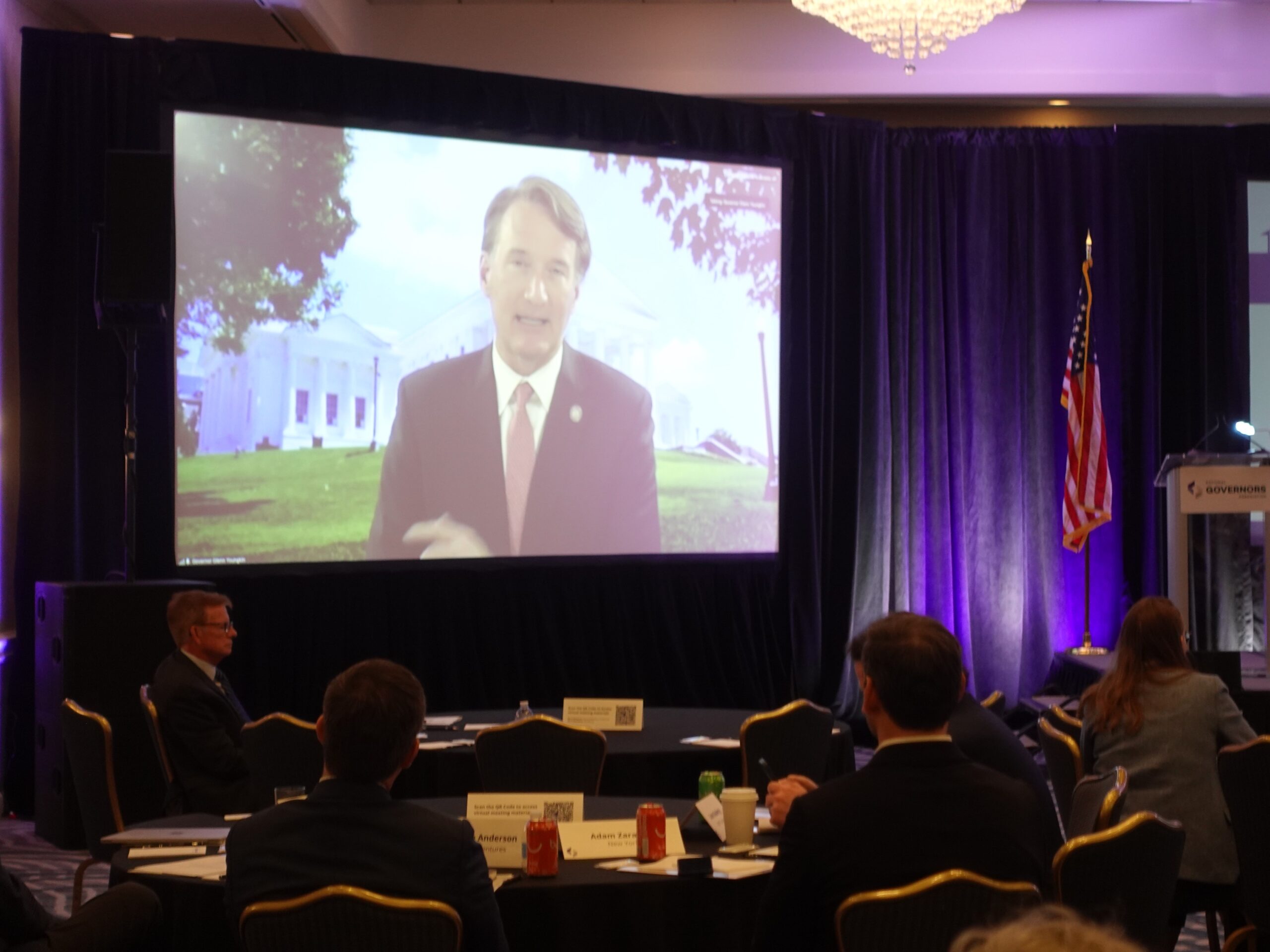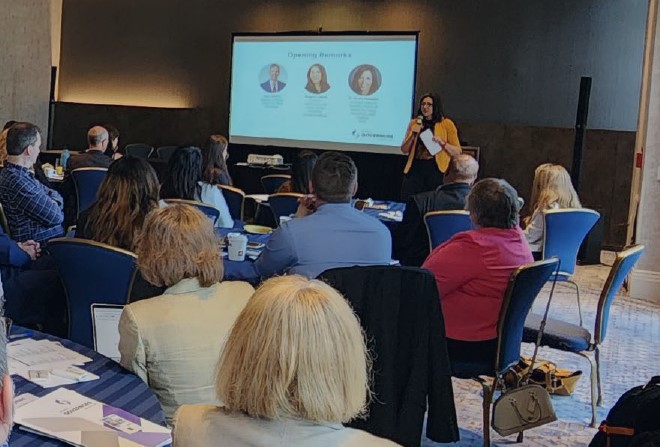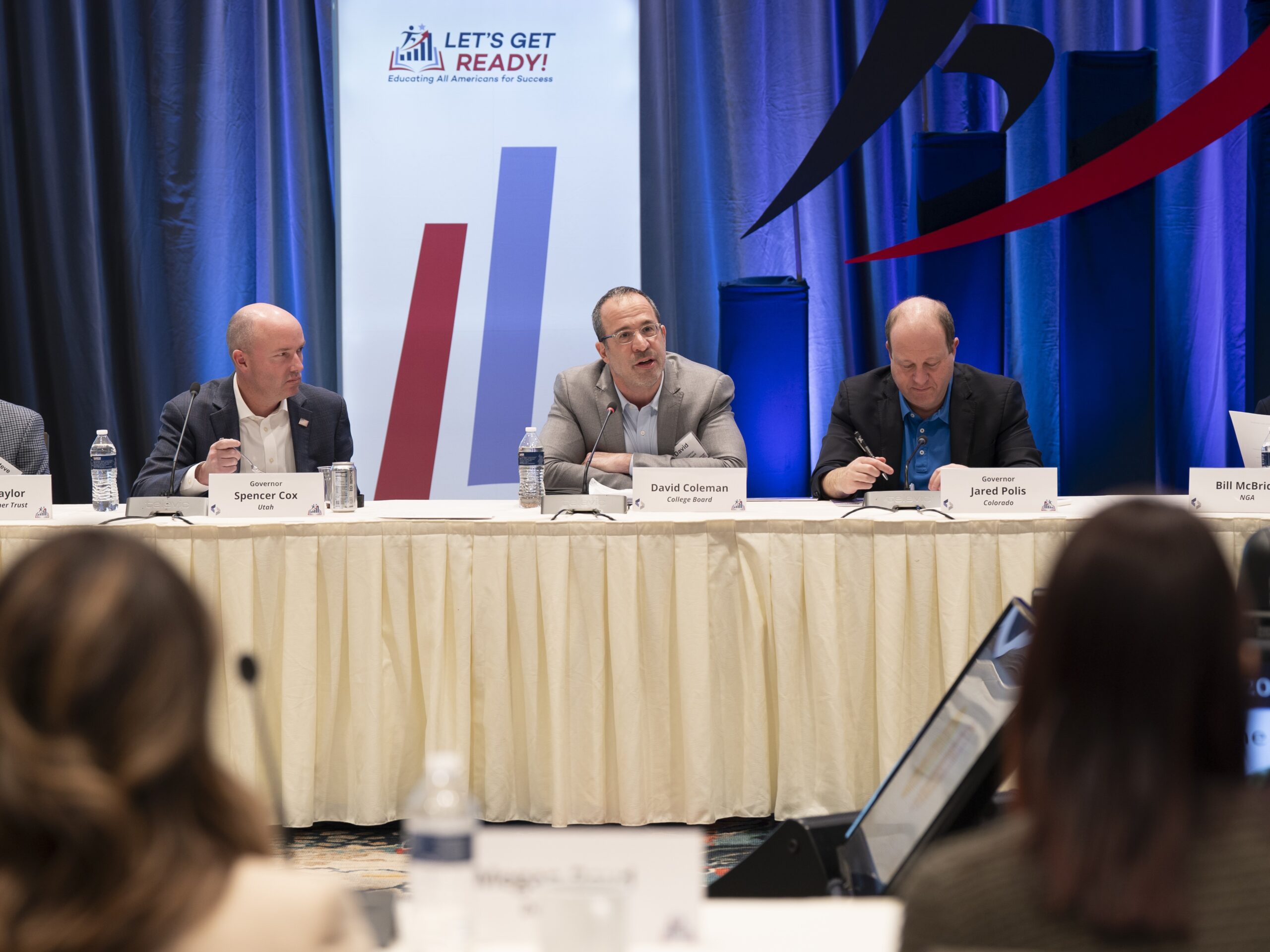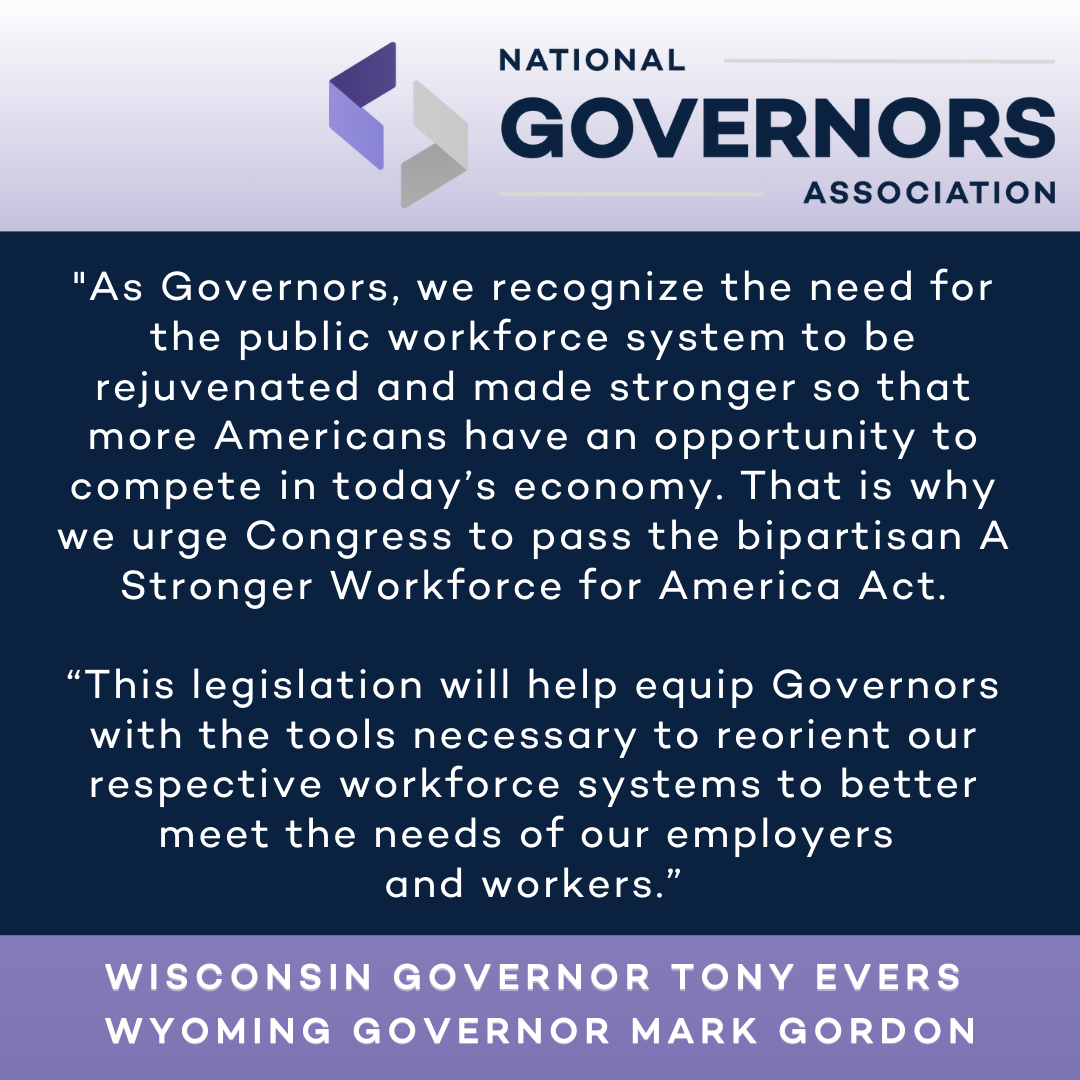The National Governors Association (NGA) welcomed Governors’ advisors and policy leaders from thirty-two states and five territories to the annual Health and Human Services (HHS) Policy Advisors Institute, August 28-29, in Atlanta, Georgia. The NGA Center for Best Practices hosts this HHS Institute each year to provide a unique opportunity for Governors’ health and human services advisors to connect, share best practices, and explore ways to address their most pressing policy challenges. The Institute provides a space for advisors to delve into healthcare and human services policy, learn from subject matter experts, network with peers, and share successes and challenges.
Dr. Mandy Cohen, Director for the Centers for Disease Control and Prevention (CDC) opened the HHS Institute with a keynote address. Bringing a state perspective and healthcare delivery background to her role, Dr. Cohen emphasized the importance of bringing everyone to the table when dealing with “thorny” population health issues. She noted that working as a team on emerging population health challenges starts with having strong data systems so everyone can understand the landscape. In the same vein of visibility, Dr. Cohen noted that public health is invisible when it is functioning well, and that it is often necessary to “make the invisible visible” to get champions on board and demonstrate the value of investing in prevention and emergency preparedness. She shared that states and territories can expect to see changes in the way CDC communicates for greater transparency and timeliness. She also reported that the CDC is also investing in state data systems, developing partnerships to improve mental health, and prioritizing upstream prevention—by supporting healthy pregnancies, young families, and programs that build resiliency and give children a strong start.
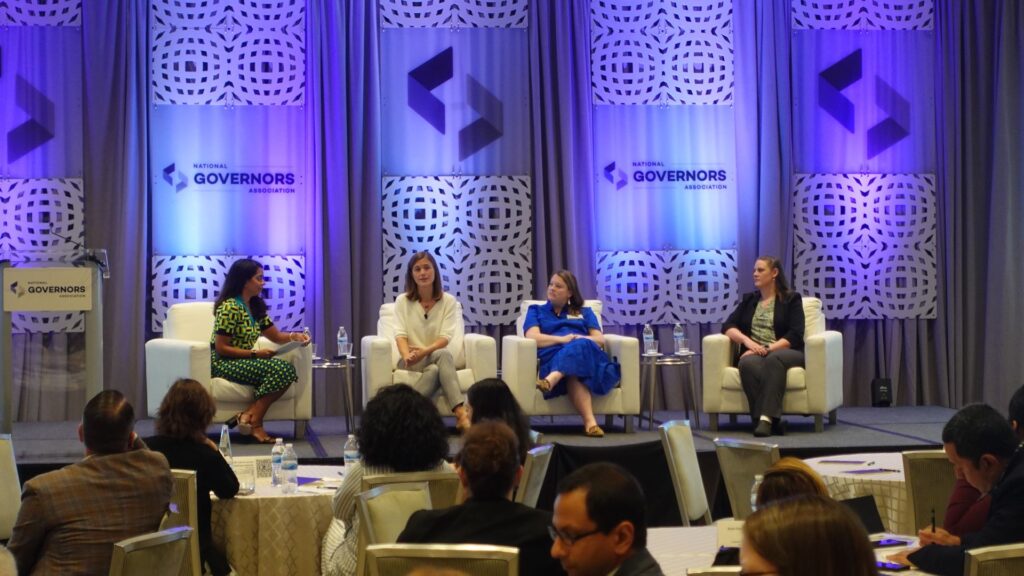
The first plenary session of the Institute centered on the wellbeing of families and children, exploring the role families’ social and economic needs can play in the involvement of their children with the child welfare system. Dimple Patel of Casey Family Programs moderated a conversation with Katie Rollins of Chapin Hall, Connelly-Anne Ragley of the South Carolina Department of Social Services, and Jill Yordy of the National Conference of State Legislatures. These experts discussed the need for proactive, upstream prevention, the power of collaboration, and policy opportunities that support family financial stability and prevent children from becoming involved in the child welfare system. The conversation highlighted recent policies, strategies, and opportunities available to states, including the Family First Prevention Services Act, Temporary Assistance for Needy Families (TANF) pilots, state child welfare laws and definitions of neglect, community prevention work, and input from those with lived expertise.
“Families need their economic and social needs met before coming to the child welfare system. It’s not just the job of child welfare, it’s the job of the entire health and human services sector.”
Institute attendees also delved deeper into emerging health and human services policy challenges across three breakout sessions and a roundtable discussion. These panel sessions covered such topics as the landscape of state cannabis policy, addressing the cost of paying for health-related social needs, and models for creating healthy workplaces that are responsive to workforce shortages and employer needs. Attendees also had the opportunity to weigh in during a roundtable on housing, where participants contributed to a discussion on supply-side policy levers to increase affordable housing and unique state solutions to address and prevent homelessness.
Day one of the Institute closed with a plenary focused on disease forecasting and emergency preparedness, facilitated by Health Program Director Brittney Roy of the NGA Center for Best Practices. The three panelists—Jackie Bray of New York State Division of Homeland Security, Zaida Dedolph Piecoro of Arizona Governor Katie Hobbs’ office, and Jackie Shawnee of the Oklahoma State Department of Health—touched on several topics, including key collaborations for emergency response, first responder mental health, heat emergencies, preparing Governors for emergency response decisions, and communicating about emergency preparedness and response.
“Sometimes I’m a fan of siloes…I want you to have a center of excellence, be good at what you’re good at, and then I want systems and relationships in place to connect it all. Sometimes that’s breaking down siloes, sometimes that’s building the connective tissue between siloes. That’s what emergency managers do.”
NGA welcomed back Governors’ health and human services advisors on day two with an opening plenary about mental health featuring Dr. Allison Arwady, Director of the CDC’s National Center for Injury Prevention and Control, Kody Kinsley, Secretary of the North Carolina Department of Health and Human Services, and Jen Davis, Senior Policy Advisor to Wyoming Governor Mark Gordon. Jay Chaudhary, Director of Indiana’s Division of Mental Health and Addictions moderated the conversation, highlighting such challenges as defining behavioral health and building sufficient provider capacity to meet the demand. Dr. Arwady discussed the National Strategy for Suicide Prevention and the CDC’s priorities, including community-based prevention, crisis and treatment, surveillance, data and research, and health equity. Mr. Kinsley and Ms. Davis shared their state perspectives and strategies, with a focus on incentivizing providers, leveraging peers to expand workforce capacity, and integrating care. Panelists also discussed the need for intentional, strategic, and equitable investments that create sustainability, as well as the importance of engaging impacted community members. The panelists also shared messages of hope for the future—opportunities they see to provide intervention and support, increase visibility of behavioral health, and shift mindsets to chip away at stigma.
“Adding more money to the system is not enough. We need to do not just more, not just better—but more and better.”
Day two included three breakout sessions, a workshop, and a roundtable discussion for policy advisors. Breakout sessions covered states’ use of technology and private sector partnerships to improve benefits delivery and coordination; state-level strategies for reducing health care costs, including examples from Utah and Connecticut; and supply-side solutions to increase families’ ability to access childcare. The Johns Hopkins Center for Outbreak Response Innovation also facilitated a workshop to learn from states and territories about their decision-making processes and what kinds of resources and information are helpful in communicating with leaders during outbreaks.
The 2024 NGA Health and Human Services Institute closed out with an advisor roundtable discussion—giving Governors’ health and human services leaders an opportunity to reflect, share with each other, and delve into policy priorities, strategies, and challenges. Attendees shared some of their Governors’ priorities, including improving data governance, supporting behavioral health system re-design, ensuring longevity of Governor-led initiatives, developing open communication and building trust with stakeholders, and expanding local workforce capacity. Emerging and top-of-mind issues for participating health and human services leaders included:
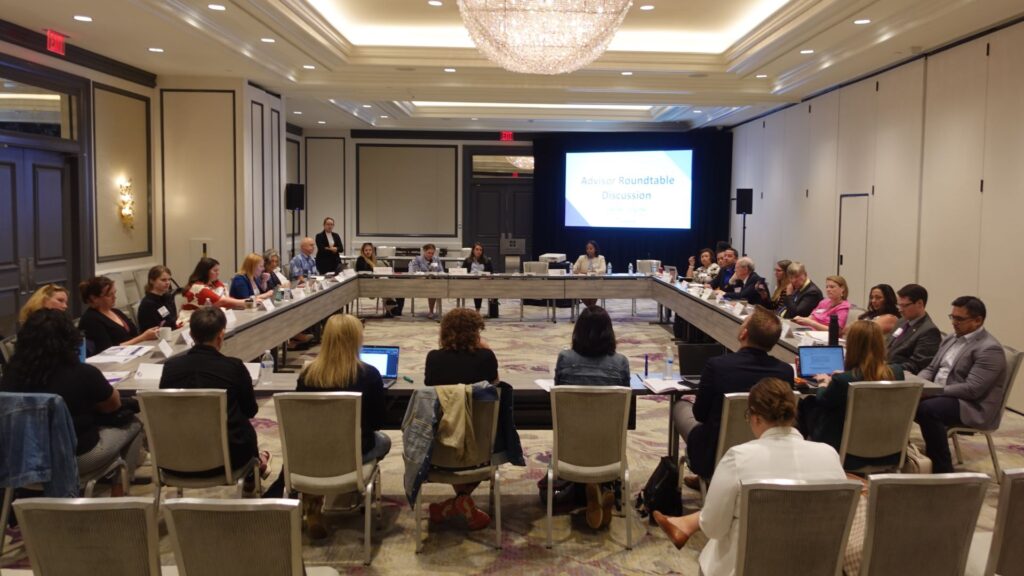
- Strengthening emergency preparedness,
- Exploring frameworks for cannabis policy,
- Redesigning behavioral health systems,
- Supporting a whole-of-government approach to housing,
- Instigating upstream prevention of criminal legal system involvement,
- Developing the healthcare workforce, and
- Implementing Medicaid 1115 waivers.
Participating advisors also noted some challenges, including bridging communication and language differences when working across branches of government, incongruencies between tradition and new concepts, and garnering buy-in for new initiatives.
NGA thanks the many health and human services leaders who attended for their openness and willingness to connect and problem-solve about shared policy challenges and the shared goal to help improve the lives of their constituencies. NGA is also grateful to the many partners in attendance, program funders, invited guests, and subject matter experts who provided their perspectives, shared information with state leaders, and made the conversations throughout the Institute more robust. The NGA team looks forward to next year’s Institute and supporting Governors and their policy advisors in the meantime. Please visit our website for more information about how the NGA Center can support states and territories.





